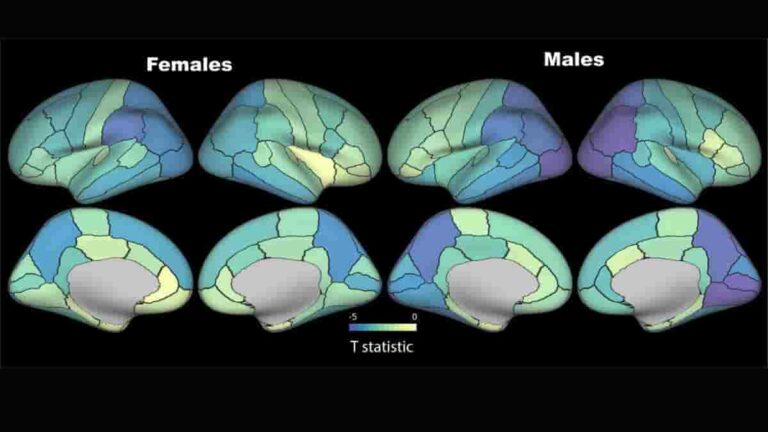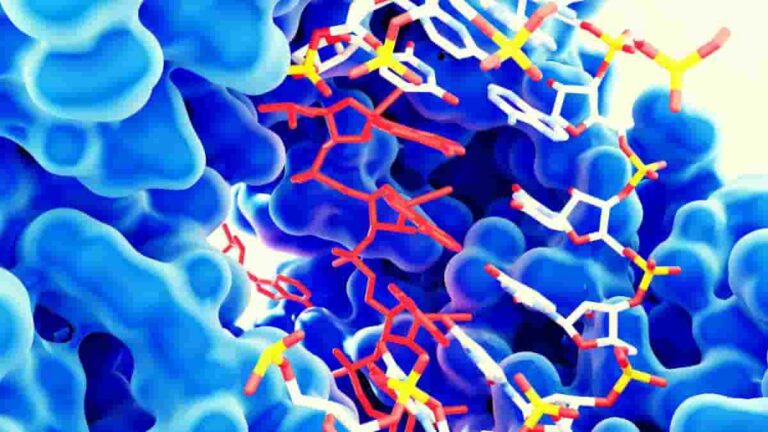According to new research from the University of British Columbia, a particular type of genetic test that helps determine the best antidepressant for patients with moderate-to-severe depression could generate significant healthcare savings and greatly improve patient outcomes. The study found that pharmacogenomic testing might save the provincial public health system $956 million over the course…
Tag: genetics
Heritability of Postpartum Depression Confirmed by Researchers
Postpartum depression (PPD), a prevalent subtype of major depressive disorder, is more heritable than other psychiatric conditions, such as anxiety and bipolar disorder, but the genetics of PPD are understudied in comparison. To address this, University of North Carolina School of Medicine researchers led an international team of researchers in the largest-ever meta-analysis of genome-wide…
Telomere Shortening Linked to Brain Changes Caused by Alzheimer’s
Changes in the brain caused by Alzheimer’s disease are associated with shortening of the telomeres — the protective caps on the ends of chromosomes that shorten as cells age — according to a new study. Telomeres on chromosomes protect DNA from degradation, but they lose some length each time a cell divides. Short telomeres are…
Adjusting Messenger RNA can Relieve Symptoms of Alzheimer’s
According to a new study, reducing the methylation of a critical messenger RNA can increase the migration of macrophages into the brain and alleviate symptoms of Alzheimer’s disease in a mouse model. The findings, from Rui Zhang of Air Force Medical University in Xian, China, may give a new therapeutic target for Alzheimer’s disease by…
ApoE4 from Neurons Has Bigger Impact on Alzheimer’s than Previously Thought
Neuronal APOE4 is essential for the development of Alzheimer’s disease’s major pathologies, new research indicates. The strongest genetic risk factor for developing late-onset Alzheimer’s disease is a gene for a protein called ApoE4. On average, people with one copy of this gene are 3.5 times more likely to develop Alzheimer’s disease than those without it,…
Love Music? You May Have a Higher Genetic Risk for Depression and Bipolar Disorder
People frequently have an intuitive belief that making music is beneficial to their mental health. A positive impact of music on mental health issues is a foundational component of music therapies. On the other hand, musicians seem to experience depression and anxiety disorders more frequently than musically inactive individuals. How do you explain that? A…
Late-onset Cerebellar Ataxia Genetic Cause Identified
Researchers have identified a previously unknown genetic cause of late-onset cerebellar ataxia. The finding will help with diagnosis and open up new treatment options for this progressive disease. Late-onset cerebellar ataxias (LOCA) are a diverse group of neurodegenerative diseases that cause unsteadiness in adults. Cerebellar ataxia is a type of ataxia that begins in the…
Smallpox Virus Dates Back to Ancient Egyptian Times
Although its origins are still unclear, smallpox was once one of humanity’s most devastating diseases. Historical records and scientific theories about when the smallpox virus first appeared have been at odds for years. A new study shows that the virus is 2,000 years older than scientists had previously suggested. This agrees with historical sources and…
CRISPR/Cas9 Editing Can Cause Genome Instability And Cell Toxicity
Depending on the targeted spot of the human genome, CRISPR gene editing can give rise to cell toxicity and genomic instability, Barcelona Institute for Research in Biomedicine scientists report1. CRISPR/Cas9 is a gene editing technique whose developers were the subject of the 2020 Nobel Prize in Chemistry. This adverse effect involves the linchpin tumour suppressor…








